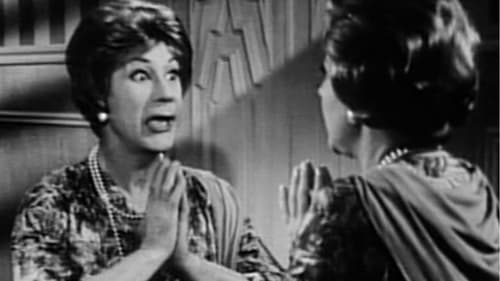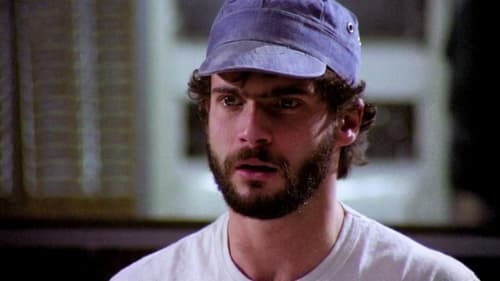
Producer
The film follows four digital influencers: Jout Jout, Bispo Arnaldo, Rita Von Hunty and Spartakus Santiago.

Writer
The film follows four digital influencers: Jout Jout, Bispo Arnaldo, Rita Von Hunty and Spartakus Santiago.

Director
The film follows four digital influencers: Jout Jout, Bispo Arnaldo, Rita Von Hunty and Spartakus Santiago.

Director
“Touch one, touch us all” is a slogan of the women who took over the streets in Brazil and organized themselves in social networks to face male chauvinist and conservatism. Through testimonies of women who have been subjected to violence, the documentary reveals that, despite legal achievements, the woman still remains vulnerable. Amongst other deponents are Maria da Penha, Joanna Maranhão, Luíza Brunet, and Clara Averbuck.

Two years of research and visits to collections, cinematheques and museums; almost seventy interviews that generated 30 hours of recorded material; more than two hundred scanned photos and more than one hundred films watched. In total, more than a thousand hours of work were needed to prepare Brazilian Cinema in the 20th Century. The work is a fascinating journey through all the cinematic cycles that Brazil lived, from the pioneering Belle Époque, through the great studios like Atlântica and Cinédia, Cinema Novo, the urban comedies of the 70's, until the resumption in the late 90's. The documentary is unique, it gives the floor to who really wrote and lived this story intensely.

Director
A documentary on cover artists.

Director
Fifteen years after their split, a man and woman reconnect during a chance encounter and reconsider their new loves and lives.

Director
Jéssica, Sabrina y Daiane sueñan, como sueñan los jóvenes de cualquier clase social y lugar del mundo. Vecinas de un barrio pobre de los suburbios de Rio de Janeiro, eventualmente se prostituyen para sobrevivir y satisfacer sus deseos de consumo. Dentro de este cuadro de absoluta confusion y falta total de horizontes, Jéssica, Sabrina e Daiane se obstinan en amar, divertirse y vislumbrar un futuro.

Herself
Cinema in 7 Colors traces an historical panorama of how the queer people were portrayed in the Brazilian silver screens, from its origin in the chanchadas of the 1950s up to the present day. The film investigates the origins of the prejudices, stereotypes, as well as the importance of the identification with constructive representations of these characters.

Producer
Follow the story of four "mother-girls" who became pregnant very early.

Director
Follow the story of four "mother-girls" who became pregnant very early.

Director
Inspired by the moving book “Só as Mães São Felizes”, by Lucinha Araújo, Cazuza's mother, the film covers a little more than 10 years of the singer’s crazy and brief life – from the beginning of his career in the Circo Voador venue, in 1981, to the huge success and the apotheosis of his shows with the Barão Vermelho band, his solo career, his relations with his parents, friends, lovers and passions, and the courage he had to face his final years, with HIV, until his death, in 1990.

Director
Fifteen year ago, Carlos went to the cinema to meet Júlia, his university colleague with whom he was in love. She never showed up. Carlos was left waiting in the lobby alone. While he waits, something happens which will change his life. A scene, an encounter, an unfinished sentence... Something insignificant, but which will determine the character's life. Fifteen years later, we follow three completely different versions of Carlos's life. In one, he is a man divided between the stability of a secure life in a lukewarm marriage, and the growing desire to live a great love affair. In the second, he is homosexual and places passion above all else. In the third possible life, Carlos is a man who hasn't yet discovered love, and lives through successive disastrous relationships in search of the perfect woman. One of them is his real life. Another is not his life. And a third is the life he'd like to lead. Which is his true life ?

Producer
Luiza is an architect who just got out of a ruinous relationship. Gabriel is a biologist and he has finished a long marriage with divorce. When they both meet, chances that they can do well together are not that big. But they will try to, even if their friends Barata (a convict bachelor totally skeptical when it comes to love) and Marta (a mathematic analyst who wishes that human relations were just as exact as numbers are) think otherwise.

Director
Luiza is an architect who just got out of a ruinous relationship. Gabriel is a biologist and he has finished a long marriage with divorce. When they both meet, chances that they can do well together are not that big. But they will try to, even if their friends Barata (a convict bachelor totally skeptical when it comes to love) and Marta (a mathematic analyst who wishes that human relations were just as exact as numbers are) think otherwise.

Director
The training process of professional soccer players has become part of a powerful economic system. The case of Pintinho illustrates the drama not only of soccer players, but all those gifted with talent and potential who permanently struggle against the social and economic conditions in which they live and which hinder their personal realization. The film shows soccer as one of the few ways of escaping poor social conditions, as well as the high price of success, the problems in overcoming personal limitations and bearing the pressures of premature expectations.

Director

Director
Pornography is a film-manifesto. An outburst against the summary execution of Brazilian cinema. It is simple and straightforward: explicit sex, on-screen text, National Anthem.

Screenplay
There is a silent and not officially declared war. A minefield where there is a battle of unequal forces. A combat without causes, disputes or conquests, where the combatants do not even distinguish their enemies.

Director
There is a silent and not officially declared war. A minefield where there is a battle of unequal forces. A combat without causes, disputes or conquests, where the combatants do not even distinguish their enemies.

Screenplay

Director

Director
A documentary dramatized on the daily life of a women's prison: Instituto Penal Talavera Bruce, in Bangu, Rio de Janeiro. The film reveals the struggle for survival within this micro-society that is formed between the walls, the relationship of these women with the penal institution, with justice and with the outside world. Through work, leisure, leisure, affective relationships and the social and sexual roles that each one assumes in prison, the film shows the relationship between people, the struggle for survival within this micro-society that is formed between the walls, the relationship of these women with the penal institution, with justice, and with the outside world.

Production Supervisor
The routine of a group of brazilian teenagers living in Brasília, Brazil's capital. Their aspirations, dreams and illusions presented in a context of a country that was on the final years of a dictatorship back in the 1980s.

Assistant Director
Biography of a Brazilian dancer who lived on an island and practiced nudism when it was forbidden by law.

Director
The transvestites of the Rio nights in testimony about their professional difficulties, moralism, repression and stardom


















